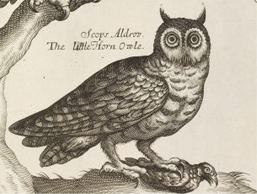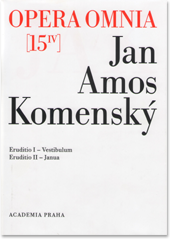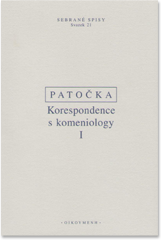* You are viewing the archive for January 11th, 2012
James Brown
January 11, 2012
Conferences and Workshops, Events, Project Updates
Tags: Animals, Arachnology, Conchology, History of Science, Martin Lister, Natural History, Royal Society, Seventeenth Century
Update: see write-up, photos, and podcasts

A seventeenth-century rendering of a little horn (or screech) owl.
A day conference on History Comes to Life: Seventeenth-Century Natural History, Medicine and the New Science‚ will be held on Friday 27 April 2012 from 9am to 5.30pm at The Royal Society in London. Organised by our industrious Martin Lister (1639-1712) Research Fellow Anna Marie Roos, and held to commemorate the 300th anniversary of Lister – Royal Physician and the first arachnologist and conchologist – the event will explore the often neglected relationship between medicine and natural history in the seventeenth-century. Featuring an exciting line-up of ten international authorities on early modern science, the meeting will dovetail out from Lister’s work to consider to what extent practices and technologies of natural history changed between the Renaissance and the seventeenth century. It will also explore how the acquisition of natural history knowledge and new schemes of taxonomy influenced the perception and treatment of animals for medical and experimental use. As well as support from Cultures of Knowledge, the conference is sponsored by The John Fell Fund, The British Society for the History of Science, The Royal Society, and the Wellcome Trust. The conference fee is a bargain at £40 (full price) or £30 (student/unwaged). For further details and to register online, please visit the conference webpage. Please address queries to felicity.henderson(at)royalsociety.org.
In exciting news for scholars of the Moravian educator and CofK stalwart Jan Amos Comenius, two Comenius-related publications prepared by colleagues and partners at the Czech Academy of Sciences have recently been released:
 The new volume of J. A. Comenii Opera Omnia, 15/IV, appeared with Academia (Prague) in November 2011. Prepared by Martin Steiner, Markéta Klosová, and others, the volume builds on three installments already published under 15 and continues the ongoing work of the Opera Didactia Omnia corpus. The edition encompasses a significant part of Comenius’s activities in Hungary, including complete versions of textbooks prepared for the first two classes of his Latin school, and includes a full editorial apparatus as well as notes, comments, and summaries of information on edited works already available in English. For further information and to order a copy, please visit the publisher’s website.
The new volume of J. A. Comenii Opera Omnia, 15/IV, appeared with Academia (Prague) in November 2011. Prepared by Martin Steiner, Markéta Klosová, and others, the volume builds on three installments already published under 15 and continues the ongoing work of the Opera Didactia Omnia corpus. The edition encompasses a significant part of Comenius’s activities in Hungary, including complete versions of textbooks prepared for the first two classes of his Latin school, and includes a full editorial apparatus as well as notes, comments, and summaries of information on edited works already available in English. For further information and to order a copy, please visit the publisher’s website.
 The letters of Jan Patočka, prepared by Věra Schifferová, have also been released in two volumes (1931-77) by Oikoymenh. A leading Czech philosopher of the twentieth century, Patočka was an eminent interpreter of Comenius’s life and work who corresponded extensively with other students of the pedagogue worldwide such as Milada Blekastad, Stanislav Sousedík, Julie Nováková, Jiřina Popelová, Josef Brambora, Antonín Škarka, Dmytro Čyževskyj, Klaus Schaller, Marcelle Denis, Franz Hofmann, and George Henry Turnbull. The letters, published in Czech, shed important light on Comenius as well as on the evolution of scholarly attitudes towards him. For further information and to order a copy, please visit the publisher’s website.
The letters of Jan Patočka, prepared by Věra Schifferová, have also been released in two volumes (1931-77) by Oikoymenh. A leading Czech philosopher of the twentieth century, Patočka was an eminent interpreter of Comenius’s life and work who corresponded extensively with other students of the pedagogue worldwide such as Milada Blekastad, Stanislav Sousedík, Julie Nováková, Jiřina Popelová, Josef Brambora, Antonín Škarka, Dmytro Čyževskyj, Klaus Schaller, Marcelle Denis, Franz Hofmann, and George Henry Turnbull. The letters, published in Czech, shed important light on Comenius as well as on the evolution of scholarly attitudes towards him. For further information and to order a copy, please visit the publisher’s website.
The Scaliger Institute and Brill publishers invite scholars and researchers to submit proposals for the 2012 Brill Fellowship at the Scaliger Institute of Leiden University Library. Brill, the oldest scholarly publishing house in The Netherlands based in Leiden since 1683, is sponsoring the Scaliger Institute from the year 2006 onwards. This contribution provides an opportunity for one or two fellows to come to Leiden University Library each year in order to carry out research in the library’s rich Special Collections. The Brill fellowship is intended for a minimum period of three months and for a maximum period of six months. The allowance, which is intended to cover the costs of accommodation and research, is €1,000 per month. Applications can be submitted by mail and post to the board of the Brill fellowship. The prospective fellow must be involved in one of Brill’s main subject areas: Middle East and Islamic Studies; Asian Studies; Medieval and Early Modern History; Biblical and Religious Studies; Ancient Near East and Egypt and Classical Studies. The Brill fellow is expected to contribute to the activities of the Scaliger Institute and to give a public lecture. When the occasion arises, the lecture will be published by Brill in association with the Scaliger Institute. The closing date for applications is 31 January 2012. For further details and application instructions, please visit the Fellowship webpage.





 Join
Join 